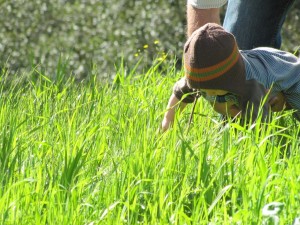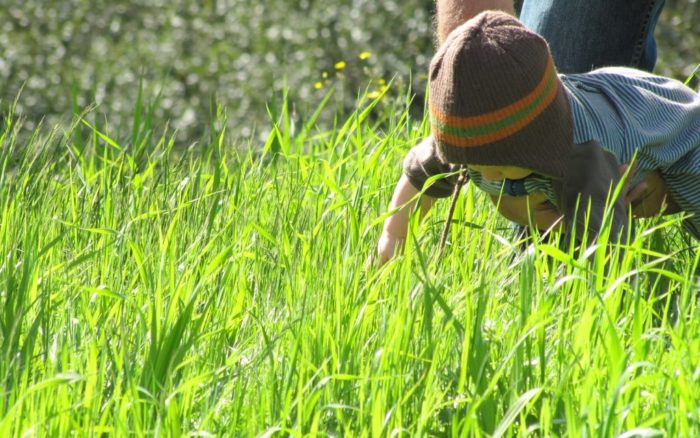 |
| Wesley on a “field trip” last spring. |
Gratitude and Our Relationship to the Earth
Watching our grandson Wesley discover our natural world is at once a delight and a horror.
The delight comes from witnessing his awe: a honey bee visiting a flowering rosemary bush, an ant column crossing a path, a buckeye seed, smooth and round, easy to slip into a pocket. Walking with Wesley is to rediscover the magic of a crow circling, or the shining clip of moon sinking just as the sun sets, or the exhilaration of a sloping path. Everything is new and fresh.
But I cannot feel this awe and wonder without also feeling anxiety and pain. When Wesley is my age, and may he get to be my age, will he walk with his grandchild and watch honeybees? Will we change our ways enough that there will still be honey bees? Will there still be coastal oaks in these parts? Madrone and coffee berry? Black oak and bay?
How do we live with the knowledge of what we have done to this dear earth of ours and claim our ongoing complicity in the destruction? What do we do with the growing awareness that we are in process of earth changes of magnitudes we cannot fathom?
How do we not dangerously sink into denial or resignation?
In a recent daylong workshop based on the work of ecophilosopher and Buddhist scholar Joanna Macy, we began with gratitudes for our earth. “What makes your heart sing,” we were asked, and as we went around the circle while standing in the west Marin sunlit grass, one by one our hearts opened in gratitude for the simple gifts of the morning: sun warmed backs, birdsong, the rich scent of earth.
“Gratitude enhances our resilience, strengthening us to face disturbing information,” Joanna Macy says.
In chaos we are most open to the divine. In the chaos of our times is the potential of that which we have not yet dreamed. Gratitude opens doors to relatedness with each other and with our earth.
